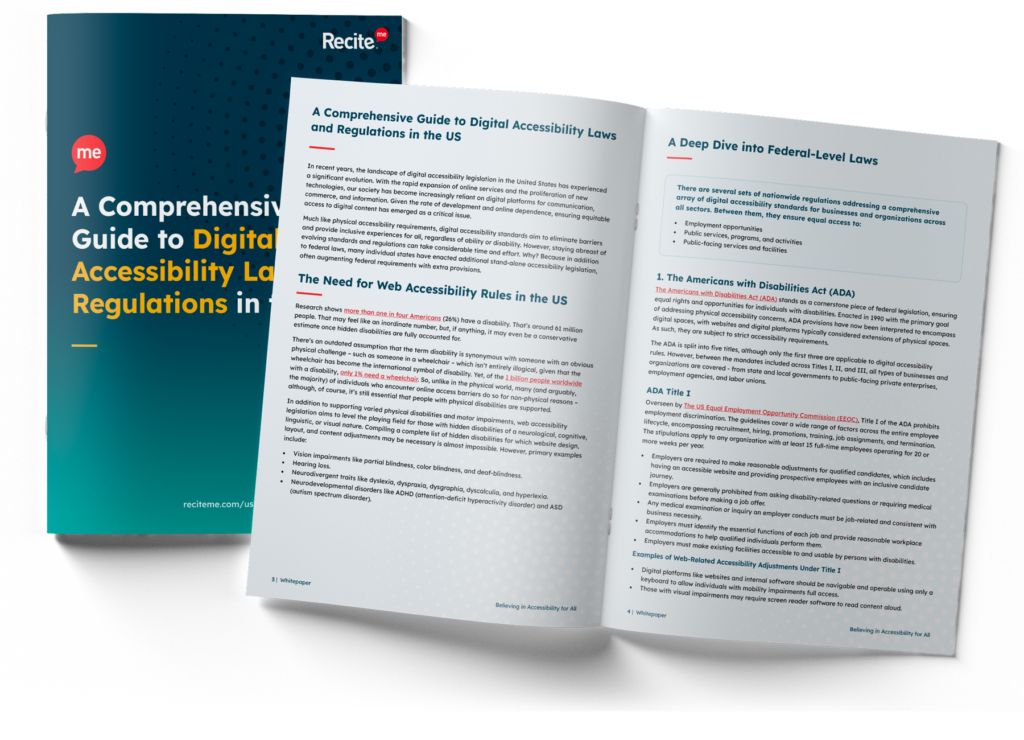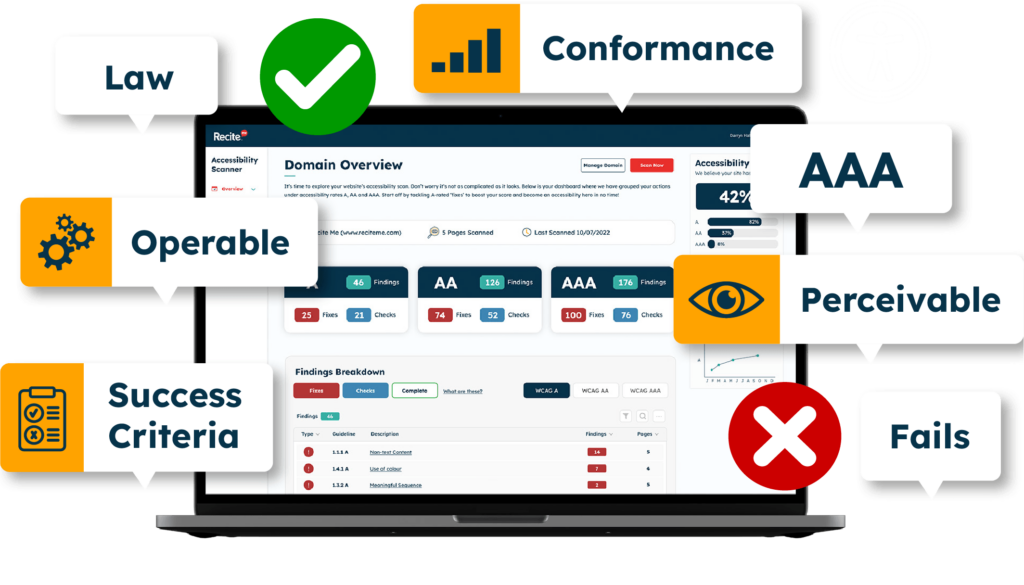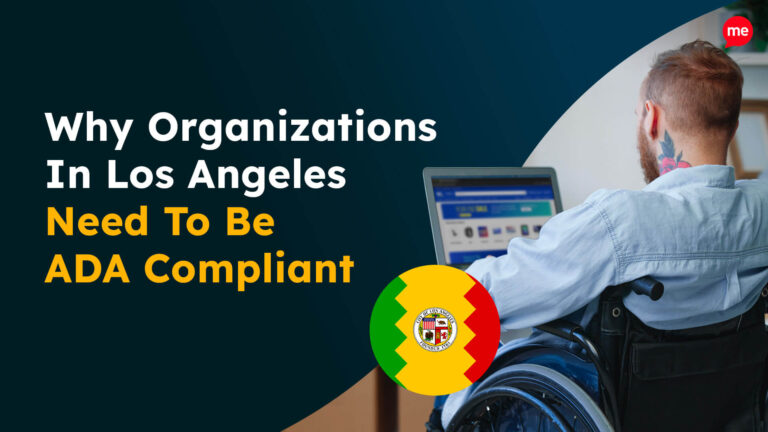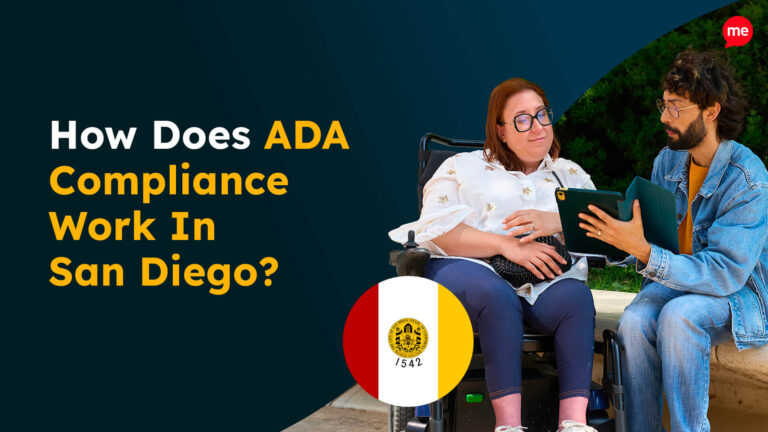In recent years, the intersection of technology and accessibility has come under increasing scrutiny from a legal perspective, and California is one of the most progressive states in terms of web accessibility legislation.
The Bashin v Conduent Incorporated and Conduent State & Local Solutions, Ltd. case stands out as a landmark filing, shedding light on the importance and criticality of compliance with website accessibility guidelines and laws.
Parties Involved

Case Summary
Due to his vision impairment, Bashin encountered online barriers when trying to make a booking on Reserve California’s website. However, rather than sue the California Department of Parks and Recreation directly, his legal team sued the government contractors (Conduent Incorporated web development agency) that made the site for failing to meet contractual state obligations.
Legal Frameworks Used
Most web accessibility lawsuits against private entities cite the Americans with Disabilities Act (ADA) Title III, which mandates public-facing businesses make reasonable adjustments to provide full and equal enjoyment of their goods, services, facilities, privileges, advantages, and accommodations to people with disabilities. You can learn more about the Americans with Disabilities Act in California here.
However, the case incorporated some ADA provisions, but also referenced three other pieces of accessibility legislation, two of which are specific to California:
Section 508 of the Rehabilitation Act
Typically, Section 508 of the Rehabilitation Act of 1973 applies primarily to federal agencies. Section 508 compliance includes ensuring all governmental electronic and information technology is accessible to individuals with disabilities. However, private entities like Conduent can still be affected because third-party contractors of federal agencies and any organizations that receive federal funding must also comply.
The Unruh Civil Rights Act
The Unruh Civil Rights Act (California Civil Code Section 51) guarantees equal accommodations for all, including those with disabilities. Originally enacted for brick-and-mortar businesses with a physical presence, court rulings have since concluded that websites are places of public accommodation, making the act equally applicable to public-facing websites.
The California False Claims Act
The California False Claims Act was an essential legal framework in this case, as the eventual success of Bashin’s legal team hinged on using the “qui tam” whistleblower provision, which enables individuals to file lawsuits on behalf of the government if they believe another organization has defrauded government funds.
The Outcome
Bashin won the case. Conduent Incorporated and Conduent State & Local Solutions, Ltd were held accountable for failing to adhere to accessibility standards – essentially equating to an unfair use of government funds. In total, the web development company was ordered to pay over $2 million in settlement fees, broken down as follows:
- $87,000 – Plaintiff award for the final settlement.
- $1.7 million – Remaining plaintiff claims and attorneys’ fees
- $165,000 – Paid back to the State.

Noteworthy Precedents
The ruling on this case is in line with the continuing paradigm shift where both private and government entities are subjected to a heightened level of responsibility for ensuring the accessibility of the websites they design, commission, and publish.
- Web Developer’s Responsibility – Developers can be held liable for failing to deliver websites that adhere to agreed-upon accessibility standards, regardless of the client.
- Accountability of Government Contractors – As per Section 508, obligations extend beyond the parameters of the immediate client relationship.

Key Takeaways
The Bashin case serves as a pivotal reference point, highlighting the critical role that private enterprises can play in facilitating equal access to public information and services. The key takeaway factors for other developers are that:
- Contractors involved in government projects must proactively prioritize and address web accessibility concerns.
- There should be explicit agreements between developers and their clients regarding web accessibility.
- Rigorous compliance is required throughout the development process.
The final court ruling demonstrates that no business is beyond reprehension, making it essential for all types of organizations to be more proactive in addressing and avoiding legal risk.
Stay ahead of the game when it comes to Digital Accessibility laws and compliance in the United States. Learn about all the different federal and state-level regulations, see real examples of web accessibility lawsuits in different regions and discover a 7-step action plan for building accessible websites.

How to Avoid Legal Risk
The best way to comply with web accessibility requirements of the ADA, Section 508, and stand-alone state legislation like the Unruh Act and California False Claims Act is to design and build websites that align with global Web Content Accessibility Guidelines (WCAG).
Almost all laws incorporating digital accessibility standards use WCAG as a foundation to ensure consistency and measurability. By providing specific, technical, and measurable frameworks supported by in-depth documentation for implementation and remediation, WCAG delivers all of the methodology and techniques website owners need to ensure compliance.
Introducing the Recite Me Accessibility Checker
The Recite Me Accessibility Checker scans your website and audits back-end and front-end web development processes by running 396 separate compliance scans in line with WCAG 2.1. Based on the findings, it generates a breakdown of accessibility issues and a prioritized action plan for how to fix them. Key benefits and functionalities include:
- Identifying inaccessible features
- Outlining accessibility issues
- Suggesting accessibility fixes and solutions
- Managing your accessibility fixes queue
- Easily tracking your improvements
- Sharing your accessibility report and score
Schedule a free demonstration or run a free scan of your website today!




